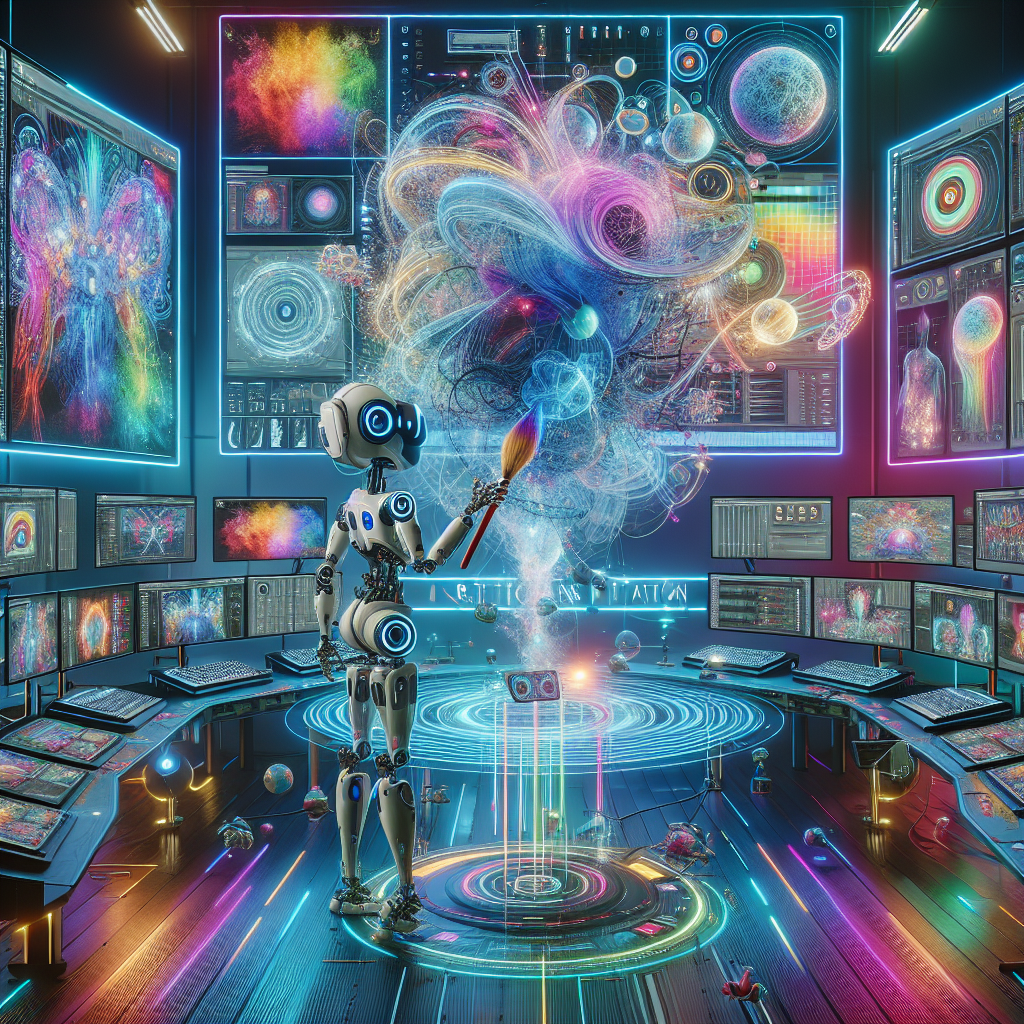Your cart is currently empty!
The Future of Art: How Artificial Intelligence is Transforming the Creative Process

Artificial intelligence (AI) is revolutionizing nearly every industry, and the world of art is no exception. With advancements in machine learning and deep learning algorithms, AI is now capable of creating original works of art, analyzing creative trends, and even collaborating with human artists to produce new pieces. The future of art is being transformed by AI in ways that were once thought impossible.
One of the most groundbreaking uses of AI in the art world is the creation of original artwork. AI algorithms can now generate paintings, music, and even poetry that rival the work of human artists. For example, a program called Aiva has been trained to compose classical music in the style of famous composers like Mozart and Beethoven. The resulting compositions are indistinguishable from the work of a human composer, demonstrating the potential of AI to create truly original art.
AI is also being used to analyze creative trends and predict future artistic movements. By analyzing data from social media, art galleries, and other sources, AI algorithms can identify emerging artists and styles, helping to shape the direction of the art world. This predictive capability allows art collectors, curators, and investors to stay ahead of the curve and discover new talent before it becomes mainstream.
In addition to creating and analyzing art, AI is also being used to collaborate with human artists in the creative process. By providing suggestions, generating ideas, and even taking on some of the more mundane tasks of art-making, AI can help artists to push the boundaries of their creativity and explore new possibilities. Some artists are even working with AI as a co-creator, blending the unique capabilities of machines with their own artistic vision to produce truly innovative works.
While AI is transforming the creative process in the art world, it also raises important questions about the nature of art and creativity. Can AI truly be considered an artist if it is generating artwork based on algorithms and data rather than human emotion and intuition? How do we define creativity in a world where machines are capable of producing original works of art? These are complex questions that will continue to be debated as AI becomes more integrated into the art world.
Despite these challenges, the future of art looks bright with the integration of AI. By leveraging the capabilities of machines to create, analyze, and collaborate, artists are able to explore new creative possibilities and push the boundaries of their craft. The potential for innovation and discovery in the art world is limitless with the help of AI, and we can expect to see even more groundbreaking developments in the years to come. The future of art is being transformed by artificial intelligence, and the possibilities are truly endless.

Leave a Reply